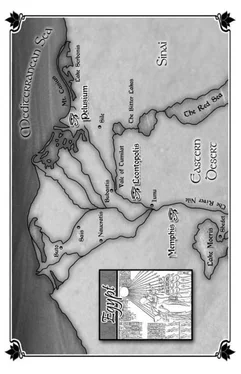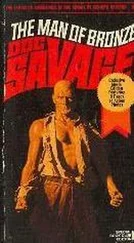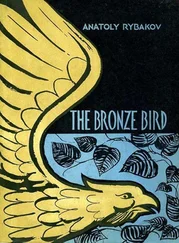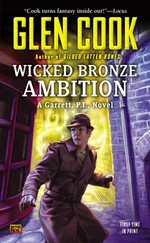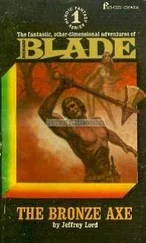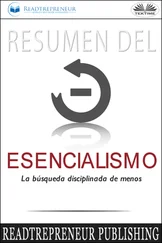Scott Oden - Men of Bronze
Здесь есть возможность читать онлайн «Scott Oden - Men of Bronze» весь текст электронной книги совершенно бесплатно (целиком полную версию без сокращений). В некоторых случаях можно слушать аудио, скачать через торрент в формате fb2 и присутствует краткое содержание. Жанр: Исторические приключения, на английском языке. Описание произведения, (предисловие) а так же отзывы посетителей доступны на портале библиотеки ЛибКат.
- Название:Men of Bronze
- Автор:
- Жанр:
- Год:неизвестен
- ISBN:нет данных
- Рейтинг книги:3 / 5. Голосов: 1
-
Избранное:Добавить в избранное
- Отзывы:
-
Ваша оценка:
- 60
- 1
- 2
- 3
- 4
- 5
Men of Bronze: краткое содержание, описание и аннотация
Предлагаем к чтению аннотацию, описание, краткое содержание или предисловие (зависит от того, что написал сам автор книги «Men of Bronze»). Если вы не нашли необходимую информацию о книге — напишите в комментариях, мы постараемся отыскать её.
Men of Bronze — читать онлайн бесплатно полную книгу (весь текст) целиком
Ниже представлен текст книги, разбитый по страницам. Система сохранения места последней прочитанной страницы, позволяет с удобством читать онлайн бесплатно книгу «Men of Bronze», без необходимости каждый раз заново искать на чём Вы остановились. Поставьте закладку, и сможете в любой момент перейти на страницу, на которой закончили чтение.
Интервал:
Закладка:
By the time Phanes reached the outskirts of Memphis, the sun was a ball of molten copper on the western horizon. He slowed his pace, drawing superheated air into his lungs in gulping breaths. The broad, dusty road swarmed with traffic. Men caked in grime trudged home from the quarries. Carts and wagons rattled over the hard-packed earth, laden with produce bound for the evening market in the Square of Deshur. Donkeys brayed and struggled. Oxen stumped along, led by brown-skinned children armed with frayed reeds. All around, flies rose in thick plague-like clouds, seemingly fueled by the combined stenches of rotting fish, dung, and rancid oil.
This portion of Memphis, abutting Saqqara, was given over to the industry of death, and by Phanes' reckoning it was a thriving industry. His Greek forebears were pious folk, godfearing and mindful of tradition. They buried their dead with dignity, said a few prayers over the graves, and went on with their lives. Compared with the Egyptians, though, his ancestors were a disorganized pack of heathens. Phanes had never seen a society so enamored of death, and their fascination was reflected in the number and variety of merchants lining the street, hawking every conceivable amenity, from incense and unguents to palm wine and cedar resins. Potters sold canopic jars for the deceased's viscera; sculptors turned blue-glazed faience into small ushabti figurines; carpenters crafted coffins of palm-wood and cedar; jewelers worked gold, silver, lapis lazuli, and a whole host of semiprecious stones into amulets and fetishes; weavers made fine linen; scribes offered meticulously lettered copies of the Book of the Dead.
Phanes passed a public well alongside the road in the shadow of a stand of palm trees. The canopy of green fronds crackled in the light breeze. A Nubian slave, nearly naked in the blistering heat, worked the creaky arm of a shadouf. His efforts filled the basin one bucket at a time. Men and women clustered around the stone-lined pond, some washing off the day's dust, others filling pottery jugs. A toddler squealed as his father splashed water over him. But, as the Greek ambled by, their laughter, their chatter, ceased. Even the children stopped, staring, fearful in the sudden silence. Phanes felt the hostility in their collective gazes.
They did not hate him for his foreign blood. Indeed, two generations of Greek mercenaries had honorably served the kings of Sais, their heavy armor shaping a political landscape ravaged by years of Assyrian rule. No, they hated him because, instead of serving Pharaoh as mercenaries should, Phanes and his men strutted about like conquerors, taking what they wanted, and who. None were safe. Not the priests in their temples or the merchants in their stalls. Not their daughters or wives. Not their sons. The Greek garrison strangled Memphis with a noose of arrogance and greed, tightening it daily. Phanes sneered at their impotent rage.
Ahead, a chariot cut through the human sea like the prow of a ship. Pedestrians scurried aside; the driver plied his whip to remove any stragglers from his path. Phanes grinned. The man who worked the reins was Greek, as well, though burned dark as an Ethiop by the relentless sun. His height, combined with lean muscles and a long jaw, gave Phanes the impression of a racing hound, a thoroughbred. He wore a short Egyptian kilt of bleached linen, belted at the waist. Phanes raised a hand in greeting as the chariot drew abreast.
"A true man," the driver said, curbing the horses, "would have made that run in full panoplia."
"A true man," Phanes said, "or a Spartan?"
"They are one in the same."
"You are Spartan, Lysistratis, yet I see no sheen of sweat on your brow. Did you sprout wings and fly to the Serapeum?"
"If I did, who then would look after your affairs in Memphis while we're off puttering in the desert?" Lysistratis said. "Come. You've a guest. That fool Callisthenes has returned from Delphi."
Phanes' grin widened, a wicked gleam in his eyes. He leapt up into the chariot beside Lysistratis. "Praise the gods! That bastard's been away so long I feared he'd made off with our offering."
"Why you would trust a fat and lazy merchant of Naucratis is beyond me," Lysistratis said. "I would have gone."
"Only you would suspect good Callisthenes, jolly Callisthenes, of treachery. What was the oracle's answer?"
The Spartan shrugged. "Wouldn't say. Says her message is for you, alone."
Phanes expected as much. It wasn't superstition or piety that drove him to seek guidance from the gods, but tradition. Since hallowed antiquity, the Greeks undertook no expedition, nothing, without first consulting the proper oracles. Heroes sought divine wisdom in their dealings. Kings sought answers to thorny problems. Even the lowliest sheepherder beseeched the gods for guidance in raising worthy flocks and worthier sons. With that in mind, Phanes sent offerings to the temples of Zeus at Dodona, Gaia at Olympia, and Dionysus at Amphicleia. Thus far, the answers to his enquiries had been cryptic yet affirmative. The last, and the one he anticipated most, was the answer of the priestess of Pythian Apollo at Delphi.
Lysistratis hauled on the reins, his horses disrupting the flow of traffic along the Saqqaran Road like a stone dropped into a fast-moving stream. Egyptians scrambled aside as the Spartan's whip cracked above their heads.
Phanes openly leered at several of the women on the street, their linen skirts sheer, their bare breasts slick with sweat. "I'll not miss this slag-heap of a land, Lysistratis, but I will miss its women. Egyptian women are so … liberated."
"I've heard the women of Persia are more beautiful." Lysistratis raised his voice to be heard over the clatter of the chariot's wheels. "Think Cambyses will share his seraglio with us?"
Phanes grinned. "We give him Egypt, and I imagine he'd let us rut his sisters out of gratitude."
From the Saqqaran Road, they crossed the broad, redpaved Square of Deshur at the western entrance of the Mansion of Ptah, where the Alabaster Sphinx glowed in the setting sun. Around this recumbent image, the evening market swirled. Men and women employed by the wealthier households bustled between stalls selling produce, bread, meat, and beer, haggling over prices, and arranging delivery to their masters' kitchens. Priests of the temples stood aloof as their factors inspected lambs and sheep, seeking those of the finest quality to serve as the next morning's offering to the gods. One such priest turned his head as Phanes' chariot passed; the Greek was unsure whether the sneer curling the priest's thin lips was intended for him, or for the bleating lamb his agent held between his knees.
Phanes' eyes narrowed. "No matter what the oracle's answer may be, it's time we started culling the herd," he said, indicating the Egyptians with a nod of his head. "Use the Arcadians. Leon's men. But keep them under strict discipline, Lysistratis! I don't want a repeat of last summer's little orgy of violence. We're not the krypteia, and these aren't helots we're terrorizing."
The Spartan glanced sidelong at his commander. He had been responsible for giving Leon's men a free hand during last summer's troubles, and though he found their methods deplorable — whole families executed to the last child — they were effective. The Arcadians were experts at rooting out discontent among the populace. "Where should they start?"
"I leave it to you."
The chariot rattled over a stretch of broken pavement before plunging down the great north-south avenue, called the Way of the Truth of Ptah. Lysistratis said, "There's a gaggle of wealthy men, old bureaucrats for the most part, who have been trying to get letters through to Pharaoh. Petenemheb showed them to me. Mostly, they complain at great length about the `arrogance of the Hellenes', and beg Pharaoh's intercession. I suspect they would organize any resistance the Egyptians might mount against us."
Читать дальшеИнтервал:
Закладка:
Похожие книги на «Men of Bronze»
Представляем Вашему вниманию похожие книги на «Men of Bronze» списком для выбора. Мы отобрали схожую по названию и смыслу литературу в надежде предоставить читателям больше вариантов отыскать новые, интересные, ещё непрочитанные произведения.
Обсуждение, отзывы о книге «Men of Bronze» и просто собственные мнения читателей. Оставьте ваши комментарии, напишите, что Вы думаете о произведении, его смысле или главных героях. Укажите что конкретно понравилось, а что нет, и почему Вы так считаете.
